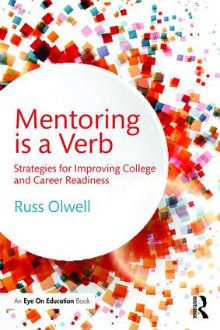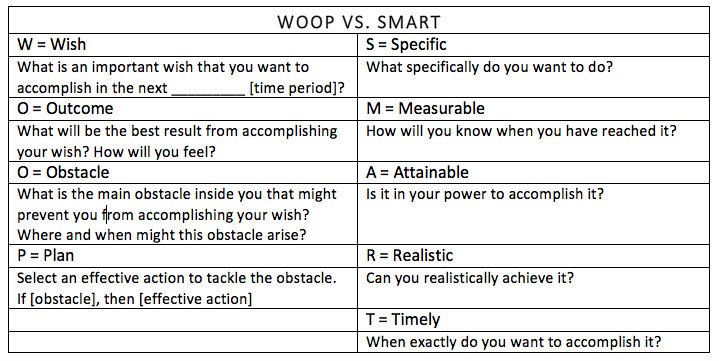How to Mentor Students More Effectively
Mentoring is a Verb: Strategies for Improving College and Career Readiness
By Russ Olwell
(Routledge/Eye on Education, 2016 – Learn more)

Russ Olwell’s book Mentoring is a Verb: Strategies for Improving College and Career Readiness is a useful guide to build the mentor and mentee relationship.
Olwell’s goal is to provide strategies that can be implemented immediately to support and advocate for students as well as to build upon their self-advocacy skill and transition them into becoming a role model-mentor for others and pay it forward.

I also liked the author’s short snapshots of real mentor/mentee stories and how he tied in leadership practices and issues that might arise while implementing a sustainable mentorship program.
Olwell divides the 20-chapter book into 5 parts.
- Part 1: What is Mentoring?
- Part 2: Becoming a Mentor.
- Part 3: Basics of Post-Secondary Success.
- Part 4: Mentoring over the Long Haul.
- Part 5: Building Sustainable Programs.
The book can be read in sequential order, but it is more beneficial if individuals skip around and read what is most relevant to them and the students they are mentoring. Each of the 20 chapters resonate with a central message: in a sustainable mentorship program, relationships are crucial.
One of my roles in my current position is being an advisor “mentor” to students age 16 to 22 who have dropped out of school for many different reasons and are now going back to school to pursue their high school diplomas. This guide allowed me to look critically at our advisory program and strategize ways to improve it, so mentees can be successful academically as well as continue to have the support they need after high school to reach their goals.
Mentoring is a Verb provides practical, hands-on, thought-provoking activities that will enhance any mentorship program. The reflection questions throughout the chapters help you look at your own hang-ups before having a conversation with the mentee. The guide also helps with understanding the perspectives of the mentees and their families, specifically when it comes to applying to colleges or trade school after high school.
Chapter 11, which focuses on asking clarifying questions to the mentees so they can think critically, is very beneficial. As educators we are constantly asking our students/mentees about their goal(s), but once they have stated a goal, we have a tendency to end the discussion.
To really help mentees reach their goals, we need to make sure we are applying the principles of cognitive coaching and asking clarifying questions. Olwell explains that we can do this by going beyond the SMART Goal framework and having deeper conversations with our mentees using the WOOP Framework.
The WOOP Framework: Aha!
The WOOP Framework was my AHA moment. This is something I am going to take back to my school and explain to my co-workers because this framework looks at mentee goals in a positive way, not just as one more thing to get out of the way. The WOOP Framework puts more ownership on the mentees and helps them feel more empowered and successful.
Mentoring is a Verb is a good resource useful to all educators who have an advisory component in their schools. The strategies are easy to implement and can be adapted to fit the needs of your mentees.
Nicolette Lesniak is an educator with over 10 years of experience teaching at-risk students in Chicago. She enjoys mentoring and supporting teachers with the everyday challenges and joys of teaching diverse learners. She lives in Northwest Indiana with her husband Jim and her cat Charlie.


































